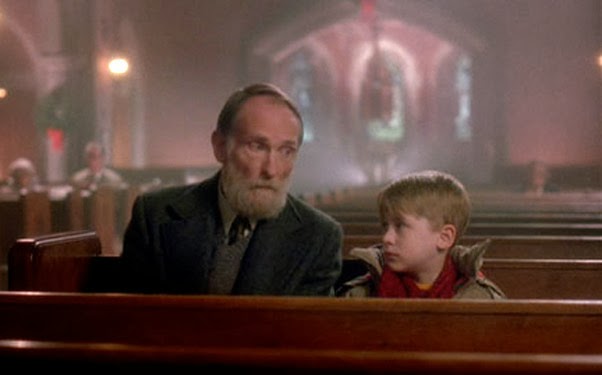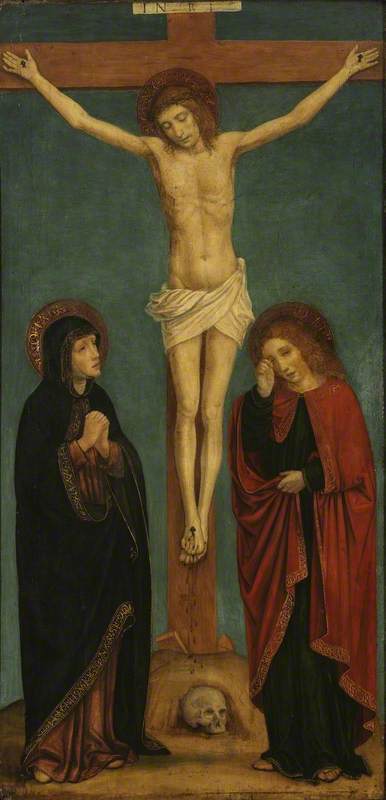A Theology of Christmas: Advent, Home Alone, and the Unexpected Peace of God
ADVENT AND THE UNEXPECTED WORK OF GOD

Our world has many problems. Such a simple sentence may be laughable, especially as we reflect on 2021. On a societal level, we are living in a unique time that historians and future generations will undoubtedly devote chapters in future books to. As that storm rages nationally, the normal problems of everyday life continue on within our families and personal lives.
On the national level, we have not experienced such national division in over a century. In all our societal ills, we are seeing our nation respond in attempts to fix them with flashes of strength and attempts at leveraging power. Some imagine rioting in the streets and setting aflame storefronts and police cars will do the job. Others protest with guns strapped to their backs or raid government buildings, imagining that through the strength of numbers and arms they can do their own work of national repair.
/https://static.texastribune.org/media/files/cc80932cb102aed3bc038d83bcfdb049/Trump%20Protest%20DC%20REUTERS%202021%20TT%2006.jpg)
Government and state leaders engage in unnecessary feats of power in responding to the pandemic, while others respond in protest in equal unnecessary measures. Anger, mockery, and even violence bounce back and forth between the two in increasing measures. Isaac Newton’s third law of motion – that every force is met with an equal and opposite reaction – seems to apply to our human interactions and responses as well.
On a personal or more micro level, these things can also be found. Family relationships can be complicated. For some, father and son, mother and daughter are not on speaking terms, both engaging in equal reactions to push one another away. Surface level conversation at Christmas dinner veils the real conversation, and even in gestures of togetherness, no one is truly together.
In our broken world, much of our life is spent responding to such problems. And if I am right about Newton’s law applying to our human problems, these cycles of problems being met with stronger reactions, giving birth to another equally strong reaction coming from the other side of the fence – whether nationally or on the personal level – the question is this: is there another way to think about repairing them? On a societal or familial level, is there another way to imagine seeing these issues repaired? Behind all the noise, I do think there lies another way.
HOME ALONE AND RECONCILIATION
Every year at Christmas time I watch Home Alone with my family. In the silliness of the movie, there is a profound scene that always captures me. Kevin, estranged from his family both relationally and physically, on the eve of the robbers invading his home, walks into a church. It’s a cathedral-like setting. A children’s choir beautifully rehearses Christmas carols in the background. The camera observes statues of saints and stained glass as the distant, transcendent sound of carols fills the ambiance. As Kevin sits down, he sees an old man that neighborhood kids rumored to be a local serial killer – Old Man Marley – sitting in a pew close by. Marley gets up, introduces himself to Kevin, and as he sits next to him, they began a conversation.

Sitting in that church, with a song about the birth of Christ ringing in the background, this odd couple realizes that they both share a problem: estrangement from family. Marley was there just to hear his granddaughter singing because he hadn’t spoken with his son in years, and he missed his family and missed his granddaughter at Christmas time. Kevin suggests he take the bold step of reaching out to his son and seeing if he would be interested in starting afresh in their relationship. Reconciliation.
There is no mistake that this conversation happened in a church. We know that there is something amazing about reconciliation, about seeing two people or two groups of people that have fallen into being almost enemies of one another, suddenly find themselves at peace with one another. It’s not exactly natural. Perhaps the strength to find such peace is found elsewhere – maybe there were other forces at work in that church, guiding their conversation, as the director quietly suggested during Home Alone.
HOW DID GOD RESPOND TO THE WORLD’S PROBLEMS?
We know our world is broken. On the societal level, no one seems to be casting any vision of repair that will not descend into further violence and chaos, or more exaggerated feats of strength. Many families have grown content with their own relational brokenness and grown weary of even knowing how to find healing without fighting the fire with fire.
But how did God respond to the world’s brokenness? Did he meet our violence with violence? Did he meet the chaos with his own chaos? Rather, he responded in the most extraordinary, unexpected, and almost irrational manner: he entrusted himself to a young woman and became a baby and was born into this world.

As the chaos raged, a baby was born – and that was God’s response of salvation. Our salvation was not born in a throne room, or a palace, or in an elite and powerful family. Rather, he chose a poor couple and a feeding trough to be brought into the world.
The never-ending challenge of Christmas is trying to grasp the nature of God shown in the Jesus’s birth narrative. Nothing is more vulnerable and weaker than a newborn baby. Yes, God’s response to the violence and brokenness of this world was to become as poor, weak and vulnerable as humanly possible.
The manger was only a foreshadow of what was to come in our salvation. Rather than God meeting our violence with violence through righteous judgment against us, he absorbed it himself. Jesus, our King and Salvation, died an undeserving death – naked, nailed to the cross in a very public and shameful manner.

Christianity says that when we find violence or brokenness in this world, we are now provided by the grace of God the opportunity bring reconciliation to the chaos by pointing to Jesus. God deflected righteous judgment by dying on our behalf – self-sacrifice. When we feel the natural desire to bring righteous judgment to our world around us, the work of Christ has effectively disarmed us in doing so. As we bear the cross, we bear love. As we bear the cross, we bear the peace we have found in Christ into this world. When we meet violence with more violence, or relational brokenness with deeper anger or hatred, we act as if the cross was not sufficient payment, and that we can do better. Rather, we point people to the cross, we forgive and, if necessary, we turn the other cheek – just as Jesus did.
CONCLUSION
At the end of Home Alone, on Christmas morning, Kevin is reconciled back with his family. He peeks out the window and sees his neighbor, the Old Man Marley, hugging his son for the first time in years, with his daughter in law and granddaughter present. Reconciliation.
It all began with a conversation in a church, with the assumption that outside the church it perhaps couldn’t have begun. I want to argue that the presence of Christians in our world is equal to bringing the insides of that church in Home Alone to our world: we must be the people that continually embody peace in our turbulent times, knowing that we don’t have to respond in equal measure to the chaos around us and in our lives. Rather, God has already responded and absorbed judgment on our behalf. The only hope for this world remains Jesus, and his people truly embodying the life of Christ with the great power of peace throughout their lives.
More in Blog
March 1, 2024
Increase?November 21, 2023
Liberated by ThanksgivingNovember 16, 2023
Building a Foundation of Prayer for the Mundane